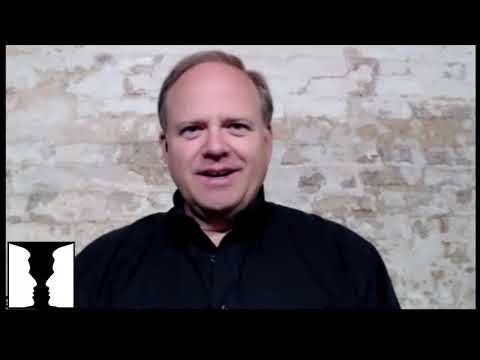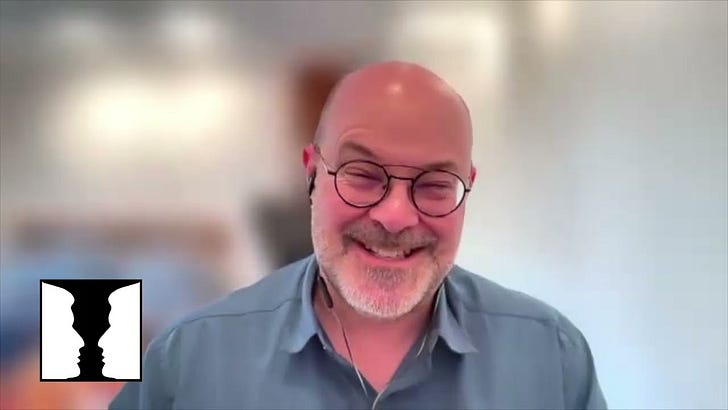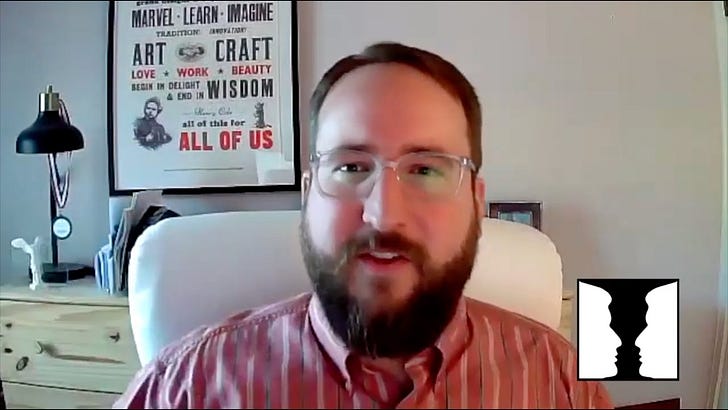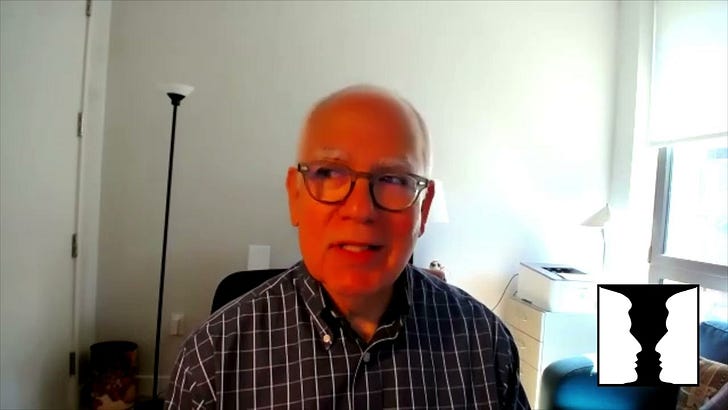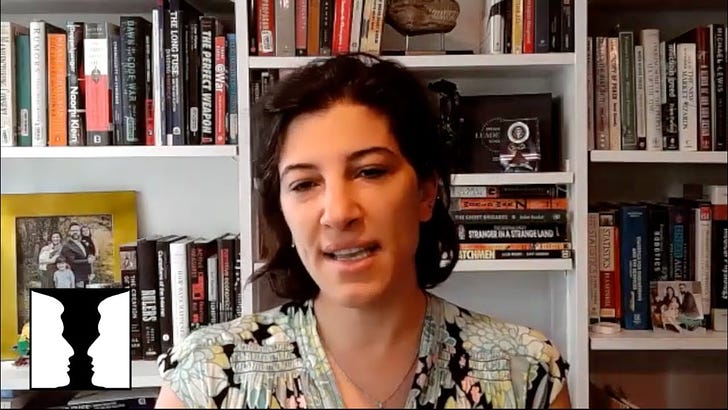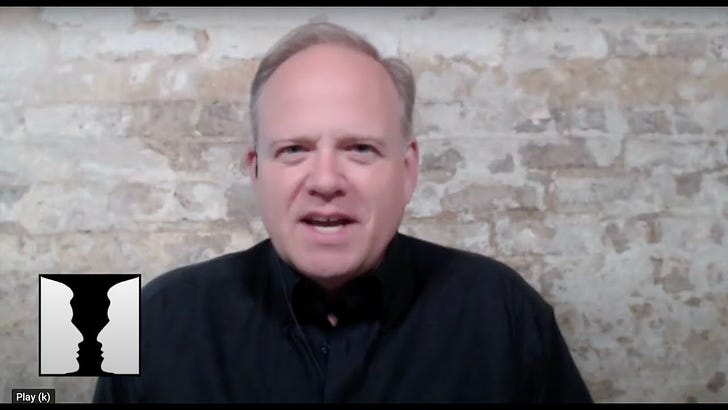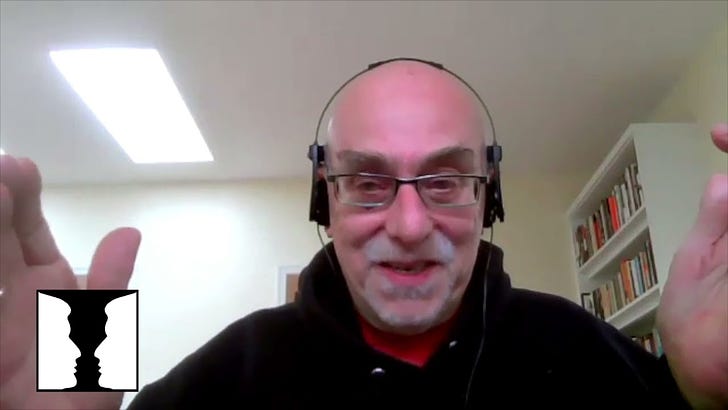The leaked draft of a forthcoming Supreme Court ruling in the abortion case Dobbs v. Jackson Women’s Health Organization raises questions about the “unenumerated rights” protected in the Ninth Amendment.
I discussed this recently with David French and Ilya Shapiro, talking about why the Constitution protects unenumerated rights and how we would tell what those rights are. How do we avoid having such determinations be a purely subjective projection of current ideological fads—versus what David calls “18th Century Infallibility Theory,” in which whatever laws existed when the Constitution was ratified are considered the final word?
And does the Dobbs opinion represent an overly restrictive view of unenumerated rights?
See the video here.
The Wit of the Staircase
There is a reference in this podcast to the “wit of the staircase,” that moment when you suddenly think of the perfect thing to say, just as you have left the party and are on your way down the stairs. Well, it was just after we recorded this discussion that I came across a blog post from Joseph Blass, a law professor at Northwestern and quite possibly the very last person still using Blogger. Blass perfectly captures my central concern about the Dobbs opinion’s approach to unenumerated rights. Blass notices a substitution of “and” for “or” in Justice Alito’s test for unenumerated rights.
Justice Ginsburg writes that a right is protected under the Constitution’s Due Process Clause “if it is fundamental to our scheme of ordered liberty, or deeply rooted in this Nation’s history and tradition” (internal quotations omitted). But Justice Alito now writes: “Justice Ginsburg’s opinion for the Court in Timbs [concluded] that the Eighth Amendment’s protection against excessive fines is ‘fundamental to our scheme of ordered liberty’ and ‘deeply rooted in this Nation’s history and tradition.’” See the difference? Justice Alito slices Justice Ginsburg’s statement of the test in Timbs in half around the word “or,” sandwiching her quoted statements of the branches around a new “and”. The opinion states the test four separate times, each time using “and” to connect the two branches. But up until this draft opinion the test has been disjunctive: in McDonald, Justice Alito states the test much as Justice Ginsburg did in Timbs, using “or.” And so does Chief Justice Rehnquist in Glucksberg, the case that originated the test by drawing together its branches from prior Due Process precedents.
In effect, under the original standard described in Glucksberg, there are two tests for an unenumerated right: one is that it be “deeply rooted in history and tradition”; the other is that it be “implicit in the concept of ordered liberty.” Either test would be enough, which is to say that a right does not have to be recognized in tradition in order to be considered implicit in the concept of liberty. That’s a good thing, in my view, because there are many aspects of liberty that have not always been recognized in tradition, and this is part of the reason those rights end up being litigated later on at the Supreme Court.
What Blass is arguing—and what I think the Dobbs opinion clearly implies—is that Alito has collapsed those two tests into one test. A right will only be recognized as implicit in liberty if it is also recognized in tradition. It replaces liberty as a standard with tradition as a standard, as I have argued elsewhere.
Contrary to what David and Ilya are saying here, that would greatly constrict the Supreme Court’s future protection of unenumerated rights. No, I don’t think the Supreme Court is going to overturn other similar cases immediately. As they point out, Justice Alito explicitly forecloses a challenged to Lawrence v. Texas or Loving v. Virginia. But then again, the current opinion cites a ruling from 30 years ago, so precedents matter. And who knows what new case will arise that we don’t even know about yet, in which the justices will be called upon to protect a right that is clearly implicit in the concept of liberty but not sufficiently grounded in tradition?
We ended this podcast with David French saying that a ban an abortion expands rights by recognizing the right to life of the unborn. But this implies an affirmation that a fetus at the very earliest stages of pregnancy is a separate being with rights. Ilya Shapiro thinks this is a question that can’t be answered by the courts and therefore should be left to the states. But I think for precisely the reason David raises, it has to be answered by the courts.
That just goes to show the kind of tough question that the Constitution’s protection of unenumerated rights requires us to face.

